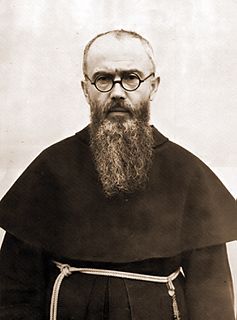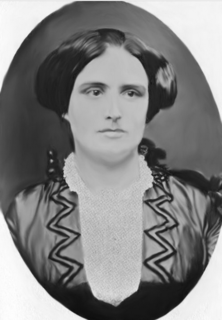A Quote by Mary McCarthy
Combativeness was, I suppose, the dominant trait in my grandmother's nature. An aggressive churchgoer, she was quite without Christian feeling; the mercy of the Lord Jesus had never entered her heart. Her piety was an act of war against Protestant ascendancy. ...The teachings of the Church did not interest her, except as they were a rebuke to others.
Related Quotes
Yet there were times when he did love her with all the kindness she demanded, and how was she to know what were those times? Alone she raged against his cheerfulness and put herself at the mercy of her own love and longed to be free of it because it made her less than he and dependent on him. But how could she be free of chains she had put upon herself? Her soul was all tempest. The dreams she had once had of her life were dead. She was in prison in the house. And yet who was her jailer except herself?
Where was Mother Teresa's Jesus? He was in the Bible, in the church, in her prayer, in the Eucharist, in her sisters, in the heart of everyone she met, and especially in the poorest of the poor and the lowest of the low. Jesus was in disguise in each one of them. Jesus was behind the foundation of her order. Jesus was behind all that she did.
Tessa had begun to tremble. This is what she had always wanted someone to say. What she had always, in the darkest corner of her heart, wanted Will to say. Will, the boy who loved the same books she did, the same poetry she did, who made her laugh even when she was furious. And here he was standing in front of her, telling her he loved the words of her heart, the shape of her soul. Telling her something she had never imagined anyone would ever tell her. Telling her something she would never be told again, not in this way. And not by him. And it did not matter. "It's too late", she said.
She sat leaning back in her chair, looking ahead, knowing that he was as aware of her as she was of him. She found pleasure in the special self-consciousness it gave her. When she crossed her legs, when she leaned on her arm against the window sill, when she brushed her hair off her forehead - every movement of her body was underscored by a feeling the unadmitted words for which were: Is he seeing it?
Nature! We live in her midst and know her not. She is incessantly speaking to us, but betrays not her secret. We constantly act upon her, and yet have no power over her. Variant: NATURE! We are surrounded and embraced by her: powerless to separate ourselves from her, and powerless to penetrate beyond her.
Let us give ourselves to the Immaculata [Mary]. Let her prepare us, let her receive Him [Jesus] in Holy Communion. This is the manner most perfect and pleasing to the Lord Jesus and brings great fruit to us." Because "the Immaculata knows the secret, how to unite ourselves totally with the heart of the Lord Jesus... We do not limit ourselves in love. We want to love the Lord Jesus with her heart, or rather that she would love the Lord with our heart.
of all the unusual features of Stargirl, this struck me as the most remarkable. Bad things did not stick to her. Correction: her bad things did not stick to her. If we were hurt, if we were unhappy or otherwise victimized by life, she seemed to know about it, and to care, as soon as we did. But bad things falling on her -- unkind words, nasty stares, foot blisters -- she seemed unaware of. I never saw her look in a mirror, never heard her complain. All of her feelings, all of her attentions flowed outward. She had no ego.
The girl was lighter without her heart. She danced barefoot on the hot roads, and her feet were not cut by the glass or stones that studded her way. She spoke to the dead whenever they visited her. She tried to be kind, but they realised that they no longer had anything in common with her, and she realised it, too. So they went their separate ways.
Now very much against her will, she thought of the way Jace had looked at her then, the blaze of faith in his eyes, his belief in her. He had always thought she was strong. He had showed it in everything he did, in every look and every touch. Simon had faith in her too, yet when he'd held her, it had been as if she were something fragile, something made of delicate glass. But Jace had held her with all the strength he had, never wondering if she could take it--he'd known she was as strong has he was.
She was like me in lineaments-- her eyes Her hair, her features, all, to the very tone Even of her voice, they said were like to mine; But soften'd all, and temper'd into beauty; She had the same lone thoughts and wanderings, The quest of hidden knowledge, and a mind To comprehend the universe: nor these Alone, but with them gentler powers than mine, Pity, and smiles, and tears-- which I had not; And tenderness-- but that I had for her; Humility-- and that I never had. Her faults were mine-- her virtues were her own-- I loved her, and destroy'd her!
One thing I did have under my belt was, my mother lost her mother when she was 11. She mourned her mother her whole life and made my grandmother seem present even though I never met her. I couldn't imagine how my mom could go on but she did, she took care of us, she worked two jobs and had four children. She was such a good example of how to conduct oneself in a time of grief. When I lost my husband, I tried to model myself as much as I could on her.
She had wandered, without rule or guidance, into a moral wilderness... Her intellect and heart had their home, as it were, in desert places, where she roamed as freely as the wild Indian in his woods... The scarlet letter was her passport into regions where other women dared not tread. Shame, Despair, Solitude! These had been her teachers—stern and wild ones—and they had made her strong, but taught her much amiss.





































